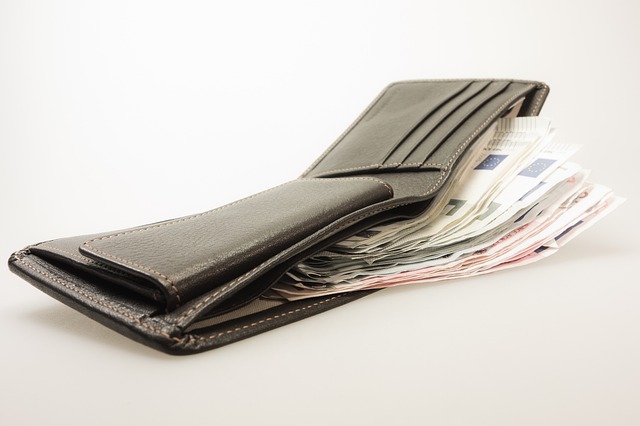The Shocking Truth About Crypto Wallets
Author: Jameson Richman Expert
Published On: 2025-02-16
Prepared by Jameson Richman and our team of experts with over a decade of experience in cryptocurrency and digital asset analysis. Learn more about us.
In today’s fast-paced digital market, cryptocurrency has revolutionized the way we think about money, investments, and financial security. As a new wave of investors enters the digital currency arena, understanding the different elements of crypto is vital. One of the most critical components of this ecosystem is the crypto wallet.
Do you know what a crypto wallet truly is? Beyond just storing your coins, it’s a gateway to managing your digital assets securely and efficiently. But, here's the kicker: many users are still unaware of the risks, benefits, and functionalities associated with these vital tools.
In this article, we will delve deep into the world of crypto wallets, their types, how to choose the right one, and the common misconceptions that surround them. Whether you are a seasoned trader or a newbie in the crypto landscape, this information can transform your approach to managing digital currencies.

What is a Crypto Wallet?
A crypto wallet is essentially a software application or physical device that allows you to store, send, and receive cryptocurrencies. However, it’s important to understand that these wallets do not actually store the cryptocurrencies themselves. Instead, they store the public and private keys, which give you access to your crypto on the blockchain.
There are several types of crypto wallets, each with its own benefits and drawbacks. We will cover these in detail to equip you with all the knowledge you need.
Types of Crypto Wallets
1. Hot Wallets
Hot wallets are connected to the internet and are the most convenient form of crypto wallet. They are ideal for frequent trading and transactions as they allow for quick access to your assets. Examples include online wallets offered by exchanges like Binance and MEXC.
However, their convenience comes at a cost. Because they are online, hot wallets are more vulnerable to hacking and phishing attacks compared to cold wallets.
2. Cold Wallets
Cold wallets, on the other hand, are not connected to the internet and offer a high level of security. They can come in the form of hardware wallets like Trezor or Ledger, or even paper wallets. While these wallets are less convenient for regular trading, they are the best option for long-term storage of digital assets.
How to Choose the Right Crypto Wallet
Choosing the right wallet largely depends on your goals and how you intend to use your cryptocurrencies. Here are some factors to consider:
- Security: If you are holding large amounts of cryptocurrency, a cold wallet may be your safest option.
- Usability: Consider how often you plan to trade. Hot wallets offer more convenience but come with risks.
- Supported Coins: Not all wallets support every cryptocurrency, so ensure your wallet of choice can handle the coins you want to trade.
- Backup Features: Look for wallets that offer recovery options in case of device loss or damage.

Common Misconceptions About Crypto Wallets
As with any revolutionizing technology, misconceptions tend to proliferate. Here are a few common myths about crypto wallets that we aim to debunk:
1. Crypto Wallets Store Coins
As previously mentioned, crypto wallets do not physically store cryptocurrencies. Instead, they hold the keys that allow you to access your assets on the blockchain. This is a crucial point every investor should understand.
2. All Wallets Are Created Equal
Not all wallets offer the same level of security or support for different cryptocurrencies. It’s essential to do your research before choosing a wallet that suits your needs.
3. Using a Wallet is Complicated
While there can be a learning curve, many wallets are designed to be user-friendly. There are abundant resources and communities available to help you understand how to use them effectively.
The Future of Crypto Wallets
The crypto landscape is continuously evolving, and so are its wallets. Innovative technologies such as biometric identification, multi-signature functionality, and integration with decentralized finance services are paving the way for more secure and user-friendly wallets.
Moreover, as regulations around cryptocurrencies become clearer, we can expect more mainstream adoption of digital assets and wallets. This could lead to more sophisticated features and services offered by wallet providers.
Important Tips for Wallet Security
Security should always be a priority when managing your crypto assets. Here are some vital tips:
- Enable Two-Factor Authentication: Always enable 2FA on your wallets and associated accounts.
- Keep Software Updated: Regular updates can help protect you against vulnerabilities.
- Use Strong Passwords: Utilize complex passwords and change them regularly.
- Be Wary of Phishing Scams: Always verify links and sources before entering sensitive information.

Conclusion
Understanding crypto wallets is crucial for anyone looking to delve into the world of cryptocurrency. By choosing the right type of wallet and implementing strict security measures, you can protect your investments and maximize your trading potential.
As the industry continues to grow and evolve, staying informed about best practices is essential. For more insights on wallets, you can visit this article to learn about the fascinating world of crypto bot trading.
If you're looking to enhance your trading journey with reliable signals and insights, read about unlocking crypto wealth by checking out this guide.
Lastly, for a deeper understanding of wallets and their functionalities, grab more details from this resource.
In the realm of cryptocurrency, knowledge is power. Equip yourself with the right tools and information to navigate this exciting journey with confidence and security.